
In today’s fast-paced world, the significance of mental health and stress management cannot be overstated. Mental health plays a pivotal role in our overall wellbeing, affecting our emotions, thoughts, behaviors, and even physical health. Ignoring mental health concerns can lead to a host of issues that impact not only individuals but also their relationships, work productivity, and quality of life. Stress, as a natural response to challenges and demands, is a universal experience. However, when left unaddressed, chronic stress can become detrimental to our mental and physical health.
Why you should manage stress?
The consequences of unmanaged stress extend far beyond the emotional sphere. Prolonged exposure to high levels of stress can lead to a range of negative outcomes. Physically, it can weaken the immune system, increase the risk of cardiovascular problems, and disrupt sleep patterns. Mentally, chronic stress can contribute to anxiety disorders, depression, and cognitive difficulties. Moreover, it can strain relationships, hinder decision-making abilities, and hinder personal growth. Therefore, understanding stress and implementing effective strategies to manage it is essential for maintaining a balanced and fulfilling life.
Understanding Stress
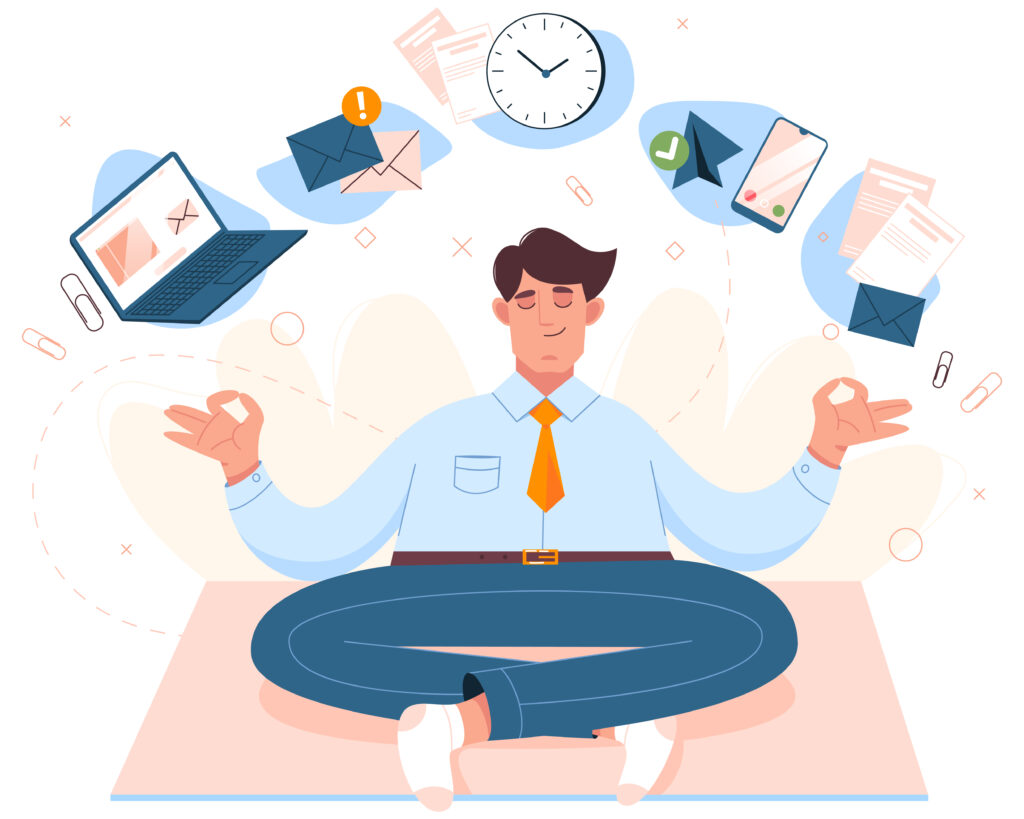
Definition of Stress and Its Causes
Stress is the body’s response to any demand or challenge that requires adaptation. It is a natural survival mechanism that triggers the release of hormones such as cortisol and adrenaline, preparing the body to either confront or flee from a perceived threat. Stressors can vary widely, ranging from work-related pressures and relationship conflicts to major life changes and financial concerns. What is important to note is that stress itself is not inherently harmful; it’s our body’s prolonged response to unmanaged stressors that can lead to negative outcomes.
Differentiating Between Acute and Chronic Stress
Acute stress is the short-term reaction to a specific stressor. This “fight or flight” response is designed to help us deal with immediate challenges. Once the stressor is removed, the body returns to its normal state. On the other hand, chronic stress occurs when stressors are persistent or when our stress response is activated frequently. This prolonged activation can lead to wear and tear on the body and mind, resulting in health problems. Distinguishing between acute and chronic stress is crucial because while acute stress is a normal and adaptive reaction, chronic stress requires management to prevent it from becoming detrimental.
Effects of Unmanaged Stress on Mental Health
A. Anxiety and Depression:
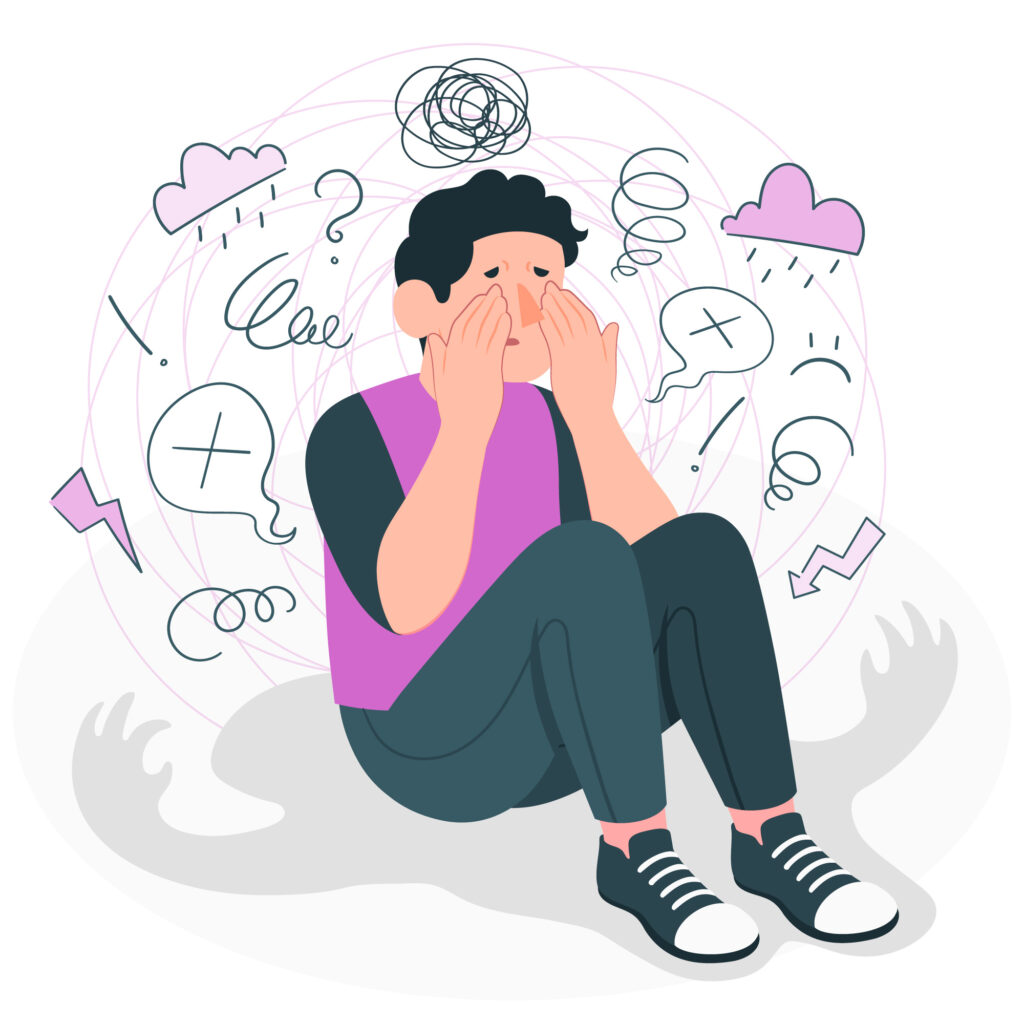
Unmanaged stress can significantly contribute to the development or exacerbation of anxiety and depression. Prolonged exposure to stress hormones can disrupt the brain’s chemistry and neural circuits, leading to heightened feelings of worry, nervousness, and sadness. Individuals experiencing chronic stress may find themselves more susceptible to panic attacks, phobias, and generalized anxiety disorder. Moreover, stress can weaken the brain’s ability to regulate mood, potentially leading to clinical depression.
B. Physical Health Implications
Beyond its impact on mental health, unmanaged stress can take a toll on the body. Elevated levels of stress hormones like cortisol can lead to a range of physical health issues, including high blood pressure, increased heart rate, and impaired immune function. The immune system’s compromised state makes individuals more susceptible to infections and slows down the healing process. Additionally, chronic stress can exacerbate existing health conditions such as asthma, digestive disorders, and skin conditions
C. Cognitive and Emotional Effects
Unmanaged stress can cloud cognitive function, affecting memory, concentration, and decision-making abilities. Individuals may experience mental fatigue, difficulty concentrating, and reduced productivity. Emotionally, chronic stress can lead to irritability, mood swings, and emotional instability. People might find it challenging to manage their emotions, leading to outbursts or emotional withdrawal.
Effective Stress Management Strategies
A. Lifestyle Changes

✓ Regular Exercise and its Stress-Reducing Benefits:Engaging in regular physical activity, such as aerobic exercises, yoga, or even brisk walks, can release endorphins, often referred to as “feel-good” hormones. These endorphins counteract the stress response and promote a sense of wellbeing. Exercise also helps improve sleep quality, reduces muscle tension, and provides an outlet to release pent-up energy and frustration.
✓ Healthy Diet and its Impact on Stress Levels:A balanced and nutritious diet plays a vital role in stress management. Consuming foods rich in complex carbohydrates, lean proteins, and healthy fats can help stabilize blood sugar levels, preventing mood swings and energy crashes. Incorporating foods high in antioxidants, vitamins, and minerals can support the body’s stress response and boost overall resilience
✓ Importance of Adequate Sleep for Stress Management:Sleep is a crucial aspect of stress management. Chronic stress can lead to sleep disturbances, and inadequate sleep can further exacerbate stress levels. Establishing a consistent sleep schedule, creating a calming bedtime routine, and maintaining a comfortable sleep environment are essential steps to ensure restorative sleep. Quality sleep enhances mood, cognitive function, and overall stress resilience.
B. Mindfulness and Relaxation Techniques
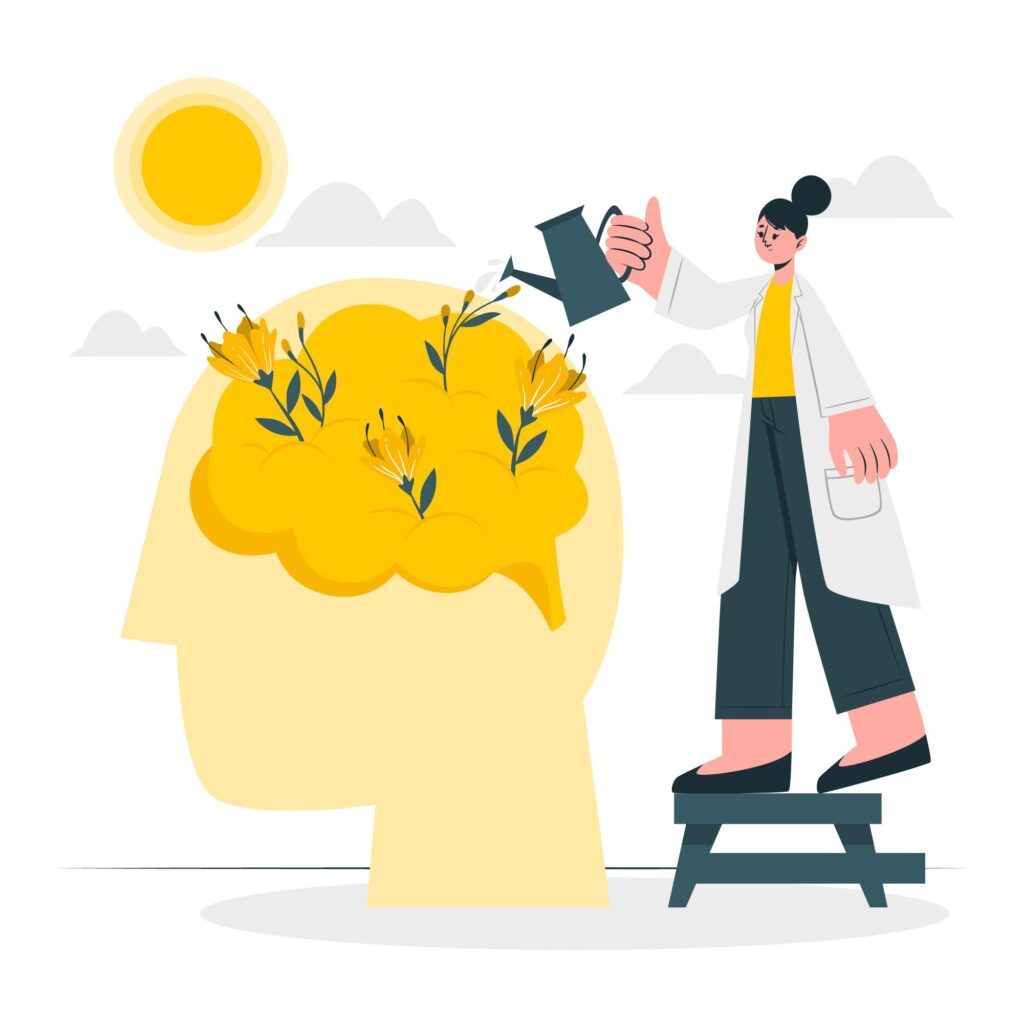
✓ Deep Breathing Exercises:Deep breathing exercises, such as diaphragmatic breathing or the 4-7-8 technique, can activate the body’s relaxation response. By focusing on slow, deep breaths, individuals can reduce the heart rate, lower blood pressure, and alleviate feelings of stress and anxiety. Deep breathing promotes a sense of calmness and centeredness.
✓ Meditation and Its Calming Effects: Meditation involves focusing the mind on a particular thought, object, or activity, often accompanied by controlled breathing. Regular meditation practice can help reduce stress by promoting relaxation, improving emotional regulation, and increasing self-awareness. It encourages individuals to detach from their racing thoughts and be present in the moment.
✓ Progressive Muscle Relaxation: Progressive muscle relaxation involves systematically tensing and then releasing different muscle groups in the body. This technique promotes physical relaxation and reduces muscle tension caused by stress. It also enhances body awareness, helping individuals recognize and alleviate areas of tension.
C. Social Support and Connection
✓ Importance of Maintaining Relationships:Strong social connections are essential for mental and emotional wellbeing. Engaging in meaningful relationships provides a support system during challenging times and offers opportunities for emotional expression and sharing.
✓ Seeking Support from Friends, Family, or Professionals:During periods of high stress, seeking guidance and support from friends, family members, or mental health professionals can provide valuable perspectives and coping strategies. Talking about stressors and emotions with a trusted person can alleviate feelings of isolation
✓ Participating in Social Activities:Engaging in social activities or hobbies that bring joy can act as a natural stress reliever. Participating in enjoyable group activities or spending quality time with loved ones can enhance feelings of connection and provide a healthy distraction from stressors.
Hand Picked Natural Supplements for Stress
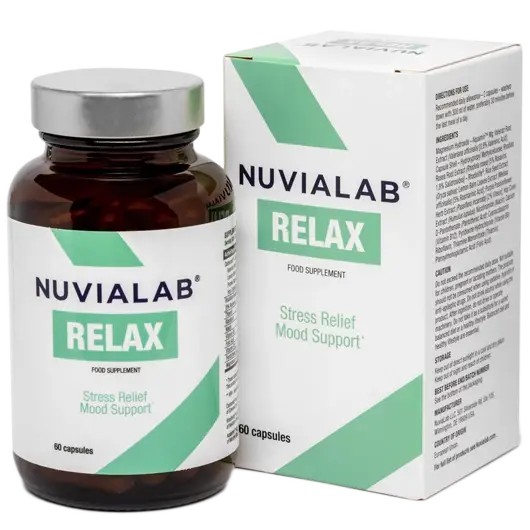
NuviaLab Relax
✓ NuviaLab Relax is a food supplement that supports the maintenance of a good mood and emotional balance. This carefully developed formula helps you to relax and maintain a good mood. In addition, the ingredients contained in NuviaLab Relax induce a feeling of calmness, have an adaptogenic effect, support cognitive abilities, and contribute to improving the quality of sleep.
✓ The effective action of NuviaLab Relax is the result of a combination of 10 natural ingredients with a synergistic effect. It contains a standardized blend of Calmomix® extracts, Golden root extract Rhodiolife®, magnesium and B vitamins. This is the best combination of ingredients to bring relaxation, good mood and restorative sleep.
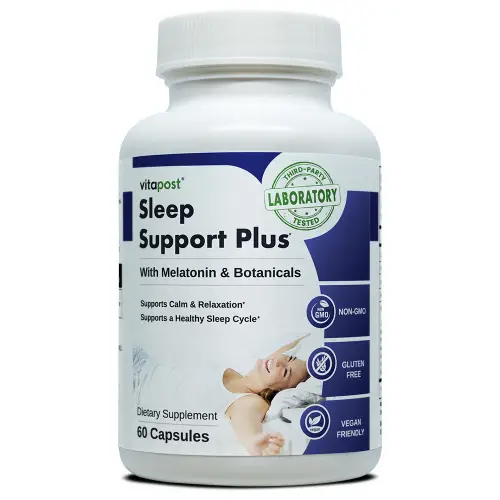
Sleep Support Plus
✓ Sleep Support Plus is formulated with minerals, vitamins and a proprietary blend of natural extracts. The natural ingredients and herbal extracts work together to create a formula that is both gluten free and vegan friendly.
✓ Supports feelings of relaxation, Eases an overactive brain, Support for occasional sleeplessness
✓ Sleep Support Plus is made in the US within an FDA registered facility that follows GMP guidelines. Ingredients in the formula are both domestic and imported.
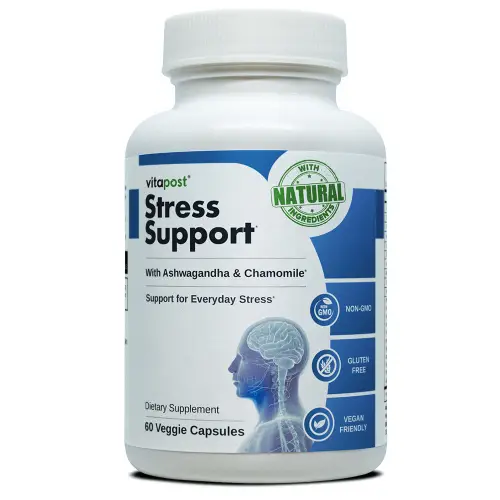
Stress Support
✓ VitaPost Stress Support is designed to support a healthy response to stress. Stress Support is a health-conscious decision in supporting your healthy response to stress, being made from active compounds derived from herbal extracts.
✓ key ingredients
Chamomile: This flower is commonly used in dietary supplements for gastrointestinal health, sleep health, and stress support.
Lemon Balm: This aromatic herb has been shown to support stress relief in some studies.
Passionflower: Some studies have found this flower can support everyday stress.
GABA: Gamma-aminobutyric acid occurs naturally in the brain, where it functions as a neurotransmitter.
✓ Stress Support is made in the USA within an FDA registered facility that follows GMP guidelines. Ingredients are domestic and imported.
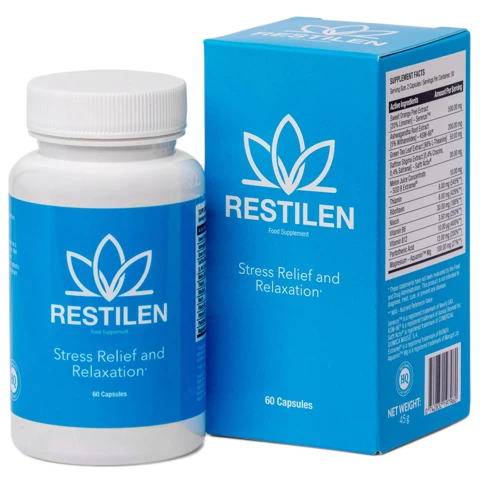
Restilen
✓Restilen is for everyone who has ever felt stress, anxiety or nervousness and wants to relieve the stress.
✓ Restilen contains a number of ingredients beneficial to mental health and well-being, including: Serenzo™, KSM-66®, Saffr’Activ®, SOD B Extramel®
✓ The active ingredients of Restilen effectively support adaptation to a stressful environment.
Creating a Personalized Stress Management Plan
A. Assessing Individual Stressors and Triggers
The first step in creating an effective stress management plan is to identify and understand the specific stressors and triggers that impact your life. This involves taking a close look at your daily routines, responsibilities, relationships, and situations that consistently lead to stress. Self-awareness is crucial in pinpointing the sources of stress.
B. Choosing a Combination of Strategies That Work Best
No single stress management strategy works for everyone. Based on your assessment of stressors, choose a combination of techniques that resonate with you and align with your preferences. This could involve incorporating elements from the lifestyle changes, mindfulness techniques, time management strategies, social support, and cognitive strategies mentioned earlier.
C. Regularly Evaluating and Adjusting the Plan
A stress management plan is not static; it should evolve as your circumstances change. Regularly evaluate the effectiveness of the strategies you’ve chosen. If certain techniques aren’t delivering the desired results, be open to adjusting or trying new approaches. Flexibility is key to finding what works best for you.
A Final Word
In the pursuit of health and wellness, remember that self-care is a journey, not a destination. The insights shared here are just stepping stones towards a balanced and fulfilling life. As you navigate the challenges and joys that come your way, always prioritize your mental, emotional, and physical wellbeing. Whether it’s practicing stress management, cultivating healthy habits, seeking support, or simply taking a moment to breathe, each small step contributes to your overall health. Embrace the journey, be kind to yourself, and remember that you have the power to shape your own path to wellness. Take care and be well!
